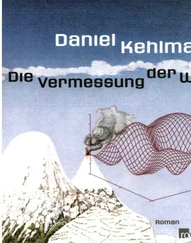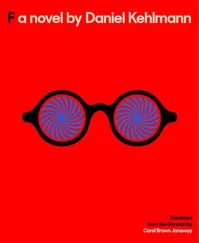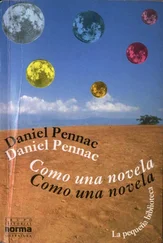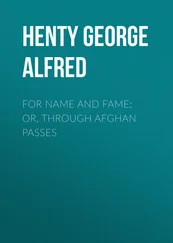He spoke neither English nor French nor German nor Greek, nor did he understand her sign language. He stood there motionless, watching her, his polite smile never wavering.
She pulled out a stool. The sun had been so fierce; she needed to sit down for a moment. And she was so thirsty. As soon as she made a goblet of her hands and lifted them to her mouth, he understood: he reached for a plastic container and poured her a glass. A few days ago the glass and the little brown filaments swimming in the water would have disgusted her, but now she drank it greedily. Then she sat for awhile, hunched over, her elbows propped on her knees. The little man waited at a respectful distance.
When she raised her head, she saw, between two Auristos Blanco titles, something she knew. She got to her feet and pulled it out. A cheap cardboard binding, garish red. Her name in Cyrillic script over a title she couldn’t read, but she knew it was Dark Rain , her most successful novel. Under the title was a photograph of a man in sunglasses and a wide-brimmed hat. This was how her Russian publisher had represented Commissioner Regler, her melancholy detective opposed to all forms of violence. How ridiculous she’d found it, how she and her husband had laughed over it!
She turned it over; no author photograph. She showed it to the little man, tapped her finger on the book, then pointed to herself.
He smiled, baffled.
She pushed it back onto the shelf. “You’re right. It doesn’t matter. It doesn’t change anything.”
He bowed.
She thanked him for the water and left.
She came to a marketplace. It smelled of sheep and rotten fruit, and the stalls were in the process of being dismantled. She went up to a big woman in an apron who looked friendlier than the others, and pointed to her mouth and stomach. The woman gave her a hunk of bread. It tasted good; admittedly a little bitter, but it gave her strength. The woman also gave her a water bottle, and after she’d drunk from it, she felt almost restored.
The woman was very wrinkled, several of her teeth were missing, and one of her eyes was half closed, the eyelids drooping to one side. She said something Maria didn’t understand. Then she hoisted a crate of potatoes and indicated to Maria that she should help carry them.
Together they hauled the crate across the street to where an old man was waiting by a tractor, and heaved it up onto the trailer. The woman squatted down behind it and gestured to Maria to do the same.
Bathed in gasoline fumes, they set off judderingly. The town soon disappeared and the steppe spread out in the twilight. The air turned cooler. For a long time a dragonfly flew beside them. The woman’s head nodded with every stroke of the engine, she seemed to be sleeping with her eyes open. The sky was empty, not a bird to be seen. Night fell.
When they reached the house, it was dark. Maria jumped down from the trailer; the ground was so muddy that she sank in up to her ankles. The house was built of weathered planks, the roof was corrugated iron; inside it smelled musty, and as the old man lit two torches, she saw a mouse run off. Outside the woman was working a rusty pump. She brought in a tin pan full of water, set it down, pointed to the wooden floor, the pail, and the floor again. Then she gave Maria a cloth.
While she cleaned, Maria tried to think. She would have to live here for a year, maybe two, no search party would find her, no envoy from the Foreign Ministry would suddenly appear to free her. She would have to stay and work until she learned the language. If these people paid her something, she’d set some money aside. At some point she’d be able to make her way to the capital. There she’d find someone who could help her. She wouldn’t be stuck here for an eternity; she was better equipped than these people; she’d come out of this.
In no time her back was aching, her arms weren’t used to the exertion, and it looked to her as if the floorboards were actually getting dirtier as she worked. She sobbed quietly. The woman sat in her chair and peeled potatoes. The old man squatted on a wooden bench, staring blankly into space.
When she’d finished, the floor looked exactly the way it had before, but the woman gave her another piece of bread and even some meat. After she’d eaten it, she went out to the pump and washed her face and hands. All of a sudden, it was freezing cold. An animal howled in the distance. The sky was full of stars.
The woman showed her the mattress on which she was allowed to sleep. It was surprisingly soft, there was just one place where a rusty spring had poked its way through, and she had to curl up to prevent it jabbing into her back. For a moment she thought about her husband. Suddenly he seemed a stranger, like someone whom she’d known long ago, in another world or a past life. She heard herself breathing, and realized that she was already asleep, looking down on herself in a dream. With astonishing clarity she knew that such moments were rare and she must be very careful. One false move and there would be no way back, her former life would be gone, never to return. She sighed. Or perhaps she only dreamed the sigh. And then, finally, she lost consciousness.
Miguel Auristos Blanco, the writer venerated by half the planet and mildly despised by the other, author of books on serenity, inner grace, and the wandering journey in quest of the meaning of life across hills, meadows, and valleys, paced ceremoniously into his study in the front of his penthouse apartment in a skyscraper high above the glittering coastline of Rio de Janeiro. A blinding light came off the sea; on the other side of the bay, first clearly, then in patches of gray shadow, the shapes of the mountains stood out, their slopes edged with the favelas. Miguel Auristos Blanco shaded his eyes with his hand, the better to see his desk: two gold pens, seventeen well-sharpened pencils, a flat keyboard in front of a flat screen, and in the filing tray the perfectly aligned stack of pages of his new manuscript, Ask the Cosmos, It Will Speak. Only one chapter still to write after the entire opus had written itself with the same effortlessness over the previous four weeks as had all his previous books; this one was about the faith and the trust that were engendered by the gestures and rituals which served to express them, and not, as was so often supposed, the other way around: if you were true to someone, you would begin to love them, if you helped a friend, you would become more honest with yourself, if you made yourself attend a Mass, you would find that it ceased to be a blind ritual and gradually revealed the existence and nearness of a Supreme Being watching over you.
Miguel Auristos Blanco didn’t invent these things, they came of their own volition and found their way into the manuscript without any help from him while he sat there watching with restrained curiosity as his typing fingers put line after line up onto the shimmering white screen, and when he stood at the end of a working day, and—like now, for instance—blinked as he watched the sun go down, he was no less exalted and edified than all of his seven millions readers were about to be.
He sighed. With a quick movement of the left hand, on whose middle finger a small tapered sapphire gleamed, he stroked first his moustache and then his thinning hair. As always when he came back from the toilet, he felt both comforted and prey to a vague melancholy. He was spending a great deal of time on the toilet these days; his doctor had told him recently that he would have to have a prostate operation soon. Miguel Auristos Blanco tilted his head, licked his lips, and heard himself give a faint sigh again. He was wearing bespoke shoes of highly polished chestnut leather, white linen trousers, and a white silk shirt open to the third button. His gray chest hair was more sparse than it used to be, but his body, at sixty-four, was athletic, with the flat stomach only to be seen on people who have a personal trainer: every day, under the watchful eye of Gustavo Monti, the former Olympic gold medalist, he trotted on a groaning, rolling treadmill about which he had once written a little book on the affirmation of uniformity, the changes within continuity, and the gentle swaying of the spirit as it moves between exhaustion and concentration. (Naturally he used the apparatus only when he was here in the city. When he was in his country house close to Parati or in his Swiss chalet on the other side of the ocean, he moved in a trance every morning through the cool and the air, his attention focused on his own breathing and on the slowly building warmth of the new day.) The book wasn’t one of his most successful, but he loved it so much that he often read it to himself before he went jogging.
Читать дальше












